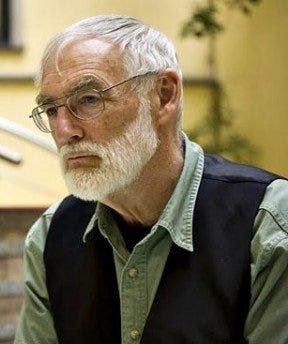Ian Sutton continues to review on his blog the chapters of the recently published new report to the Club of Rome, "Limits and Beyond" (Exapt Press 2022)
- The World3 model continues to be more useful than the “many models advanced by economists who refuted our work since its first publication”.
- He distinguishes between physical and social models. We can predict solar eclipses or the melting point of ice with certainty, but we cannot predict how humans will act. Therefore, the fact that modern computers are much more powerful than their 1972 counterparts is not necessarily more helpful. (Engineers express the same distinction when talking about the difference between precision and accuracy. “When you’ve got baloney, it doesn’t matter how thin you slice it, it’s still baloney”. Or, “An engineer is someone who multiplies 2 by 2 on a slide rule, gets an answer of 3.9 and approximates to 4”.)
- “Climate change was not a serious concern 50 years ago”. Dr. Meadows argues that the model is nevertheless still valid because, “magically eliminating it would still leave other grave problems”. In other words, climate change is not a root cause; instead it is a symptom of deeper root causes.
- The biggest threat is to our social fabric.
- He concludes by saying that the, “. . . report did not make discernible changes in the policies of the world’s leaders”. However, it did influence the thinking of many individuals.
The fact that Dr. Meadows has worked so hard to deliver the message of Limits to Growth is impressive. The question remains, however, “Why has such communication mostly failed to make a discernible impact on the body politic?”

One message that we have definitely learned that simply presenting well-researched information is not enough. It is possible that we need some type of '‘social tipping point’ as I discuss in Needed: A Tipping Point.


"At best, they see climate change as being just one problem among many. Maybe they sense that facing up to limits to growth involves making sacrifice, and most people don’t want to go there." This, to me, is definitively the crux of the predicament in which we live and pass on to the next several generations. Whether the denial of those who claim that "the green revolution" will permit the continuance of all we currently have, or the denial of those who claim there is only a small problem at most [e.g., continued oil extraction and use proponents], the proposals are equally unreal, though not unbelievable. No polity offerings from the corporate masters, their political minions, nor the technocracy that continues with BAU, will suffice in the present of too many poor people the world over, nor for the majority of us still too comfortable to make the necessary changes that would serve as livable example for the present and near future.
ReplyDeleteI agree that BAU is not in the cards. Whatever the future holds, it will be profoundly different from our current way of living. If people — leaving aside those who are saints — are not willing to voluntarily make cut their consumption then we need to offer a future that is attractive and appealing. Can this be done? I am dubious, but there are three lines of thought worth following.
ReplyDeleteThe first is that industry will provide leadership — not because they want to do good, but because they want to make money in this future world. They also want to avoid their own Kodak Moment (see https://netzero2050.substack.com/p/net-zero-response).
Second, I feel that I have seen all this before, on a much smaller scale. The chemical process industries developed what we now call Process Safety Management (PSM) in response to the predicament of serious fires, explosions and spills. It worked. I will be presenting a paper on this topic in October (the paper proposal is at https://netzero2050.substack.com/p/net-zero-process-safety). I draw an analogy between PSM and Net Zero.
Third, I am watching the gas/oil supply situation in western Europe with interest. The Europeans face a forcing function. The basic idea is that you do not change a system to reduce consumption and inventory. Instead you arbitrarily cut inventory, thus forcing the system to respond. Posts on this theme are at ‘A Forcing Function’ and ‘Russian Gas and the Forcing Function’ (https://netzero2050.substack.com/p/lean-management-russian-energy?s=r and https://netzero2050.substack.com/p/russian-gas-forcing-function respectively).
We live in interesting times.
[The World3 model continues to be more useful than the “many models advanced by economists who refuted our work since its first publication”.]
ReplyDeleteI think you should take the liberty to edit Ian Sutton's text by putting the word 'refuted' between much needed quotation marks...
Or "purportedly" before refuted...
DeleteI understand your point, but this text has been written by someone else. I can't modify it without his permission!
DeleteThis comment has been removed by the author.
ReplyDeleteI will never understand the counter point that "they may have to sacrifice", why is cycling to the beach to see your friends or to read a book in the park such a sacrifice? Sure I may not be flying the world over to spectate at car races but is it really doing something different such a big sacrifice ?
ReplyDeleteAgreed...But while climate change is uncertain (Martin Armstrong's AI predicts cooling in the near future) and generally gradual, the depletion of fossil fuels (and many other resources) is quite certain, and imminent...We have to transition, more or less, to the Amish way of life...and the Amish are quite a happy people...
ReplyDelete